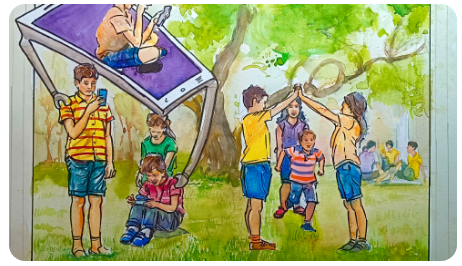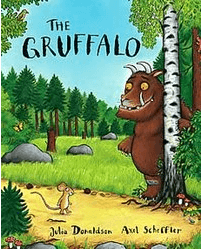Do you feel a writer, a poet, or someone else trapped inside you? Do you feel a plethora of emotions but are unable to express those the way you want, to your imagination’s full extent?
There’s a simple solution to this – Read.
Read more. And more and more and more, till you start living those books, those stories, those poems, and you’d find yourself creating your own.
You’d realise how words by accomplished writers and poets create detailed visuals in your mind, how their words transport you into situations about which they have written in a way that you cannot stay a mere audience, but becomes the doer , the protagonist!
Gradually, you’d find your groove as a writer.
It’s a rich world out there and to visit every place, experience each culture, live a different life is not possible, but a book takes you to all places faster than any plane, the stories let you soak in different cultures deeper than any dye and the characters let you live a thousand lives in your one lifetime.
Reading widens your horizon, enriches your vocabulary, enhances your vision and most importantly, it lets you explore your inner self.
It makes you rise above ordinary.
Good books are those leather bound chests inside which words of wisdom, like jewels have been treasured in their frail brittle pages since time immemorial. These are those glass bottles with messages inside them, which are floating in the vast ocean of life, bobbing on the waves and are found by many , but the life altering messages are intercepted only by those who are truly blessed.
Once this habit is cultivated then finding a good book is quite simple ; the one which defies time periods, geography, culture and language; one which appeals to different genders, ages alike around the globe is a good book or – a classic. Such books never age and if they do, they do it gracefully. And, you like them. Forever.
Why, there’s always a place for a Malory Towers term along with Harry Potter’s, ‘The Secret Garden’ blooms under ‘The Room Above the Roof’, Dr. Dolittle, Velveteen Rabbit, are happy beiny partners with Matilda and Anne of the Green Gables, and Alice sitting at the base of the Faraway Tree wonders ‘Where the Wild Things Are’?
‘A Tale of Two Cities’, The Old Man and the Sea’, ‘ To Kill a Mockingbird’ share shelf-space with ‘The Help’, ‘The Alchemist’, and ‘The Kite-maker’, and ‘The Midnight’s Children’, ‘The Birth of Venus’ sit adjacent to ‘The Northern Lights’ and ‘Chocolat’ without anyone of these losing any of their relevance, razzmtazz or respect!
Enjoyed and revered by all generations, these are passed on as beacons of wisdom, bonds of affection, as parts of heritage from a parent to child and at times as piece of one’s soul. Such is their timelessness, charisma and enchantment that these become an integral part of a reader’s life not just affecting his philosophy and outlook, but at times the nuances of his actions, decisions and perceptions.
So, as parents, educators and elders it’s our duty to introduce our younger lot to these amazing experiences and guide them as they explore the world through these. We must help them in befriending these seemingly mundane articles and make them understand how books are their friends and guides, how paper is always more patient than man and how reading can help them and us all to evolve not just as better writers, but as better humans too.
We have the responsibility to enable the child to understand stories, to enjoy poems and apply the learnings, spread the joyfulness, and practice empathy in real life while making sure that the world of books is to be a part of the child’s life and not the other way round.
We must shoulder the responsibility to nourish young minds with a healthy diet of articles and anecdotes, verses and tales ; early inculcation of which develops patience, imagination, analytical powers, enriches vocabulary enhancing their creative side.
Children who read a lot are more expressive in their thoughts as reading well written stories, beautiful poems coming from diverse cultures nudge their dormant dreams and nurture their budding abilities. The habit of reading be it Grandma’s tales, Sindbad’s stories, the mythological epics, folktales, bedtime prayer books, or the adventurous saga of Huckleberry Finn, good books help young writers burgeon into sensitive story tellers with excellent command over language, emotions and content. While growing up, the habit of self reading helps such children to visualise characters and situations , dwell in that mental image, feel it and later re-create their own versions of life and surroundings. As they create better versions, they pave way for not just new stories, but inventions and advancements too.This, reading is the first step not just towards writing, the birth of a poem or a story, but also towards the germination an idea, a hypothesis, an invention – a brave new world. So, if you still feel that someone is trapped inside you, read.
If you feel you have a lot to say , you have your own version, a different perception, a bold vision but you are unable to express, well read more.
Read diverse. And you might find a writer, a poet, a scientist, a revolutionary, a reformer, an altogether different person bursting out.
Don’t hold back. Read.







